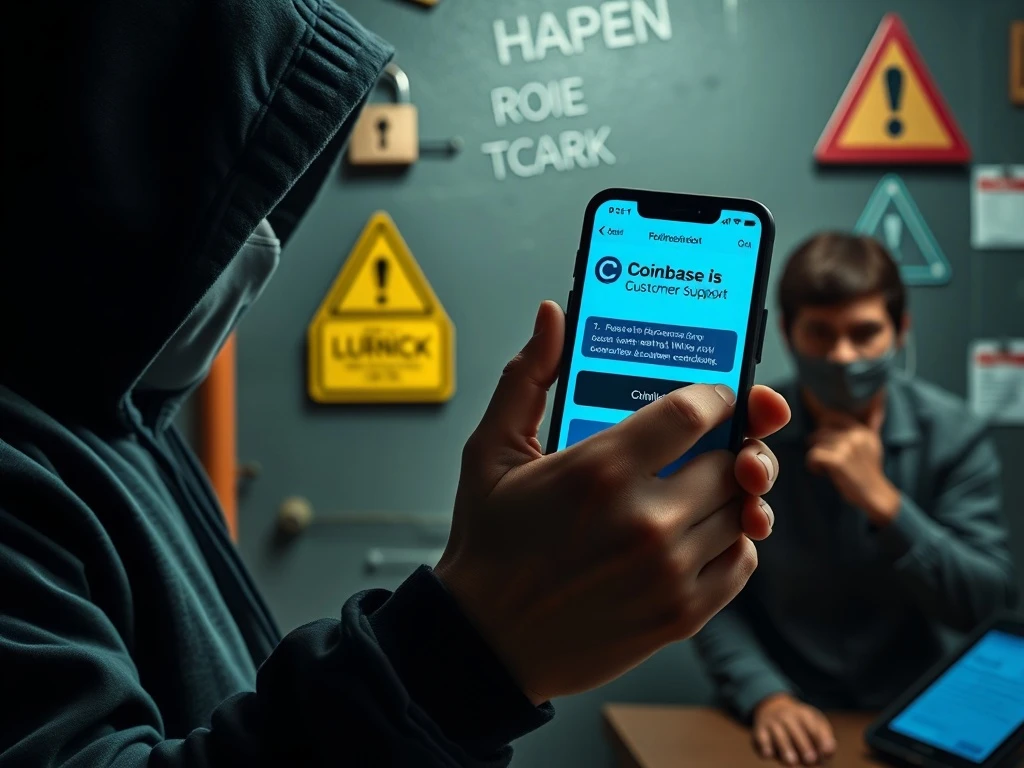Beware: Coinbase Phishing Scams Now Target Recovery Phrases in Alarming Vishing Attacks

Cryptocurrency users, beware: Coinbase phishing scams have evolved into highly sophisticated vishing attacks targeting your recovery phrases. A recent viral TikTok post exposed a multi-layered scam mimicking Coinbase customer support, putting thousands at risk. Unlike old phishing attempts, these attacks use real user data to appear legitimate, making them harder to detect.
How Coinbase Phishing Scams Work
These vishing attacks follow a carefully crafted script:
- An automated voicemail warns of suspicious activity on your account
- A live caller claiming to be from Coinbase support follows up
- Through urgent calls, scammers build trust and request your wallet recovery phrase
The Shocking Truth About Recovery Phrase Security
Scammers leverage personal data from previous breaches, including a May incident where 97,000 users’ information was exposed. They use:
| Tactic | Description |
|---|---|
| Cloned emails | Perfect replicas of official Coinbase communications |
| Spoofed caller IDs | Appears as legitimate Coinbase support numbers |
| Pre-generated seed phrases | Used to “verify” your account during calls |
Why Non-Custodial Wallets Are Your Best Defense
The crypto industry’s golden rule applies here: “Not your keys, not your crypto.” Non-custodial wallets give you full control, making them essential for:
- Protecting against social engineering attacks
- Maintaining complete control over your assets
- Eliminating third-party vulnerabilities
Frequently Asked Questions
How can I spot a Coinbase phishing scam?
Look for urgent requests for your recovery phrase, calls from unknown numbers claiming to be support, and emails with suspicious links.
What should I do if I gave my recovery phrase to a scammer?
Immediately transfer your funds to a new wallet with a fresh recovery phrase. Consider your compromised wallet permanently unsafe.
Does Coinbase ever ask for recovery phrases?
No. Legitimate customer support will never ask for your recovery phrase or private keys.
Are hardware wallets safer against these attacks?
Yes, hardware wallets provide an additional layer of security, but remember: no wallet can protect you if you voluntarily give up your recovery phrase.









